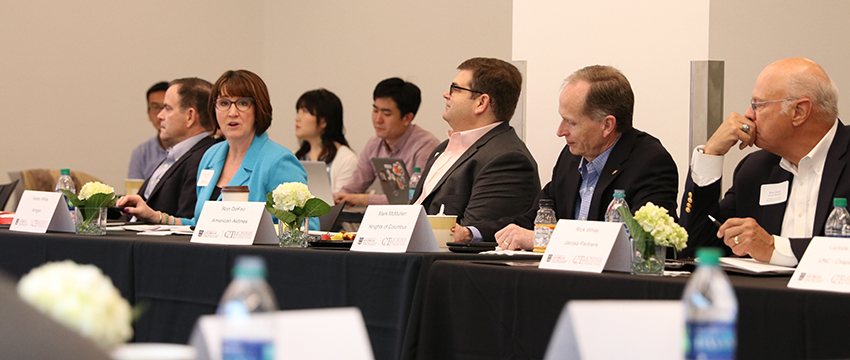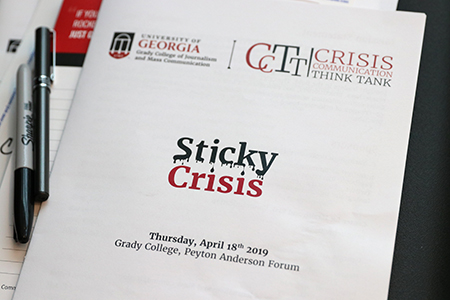UGA hosts Second Annual Crisis Communication Think Tank

UGA hosts Second Annual Crisis Communication Think Tank
The University of Georgia’s Department of Advertising and Public Relations at the Grady College of Journalism and Mass Communication held its second annual Crisis Communication Think Tank event on April 18, 2019. This year’s CCTT theme was “sticky crisis,” with a focus on how to advance crisis communication effectiveness in managing challenging and complex crisis issues. The CCTT convened 23 leading crisis communication scholars and executives to discuss to discuss trends and share insights on these issues, integrating research and practice.
The 2019 CCTT program was hosted by Dr. Bryan Reber, Dr. Yan Jin and Dr. Glen Nowak. The day-long event comprised of two invited speakers, as well as two crisis scholar and practitioner panels.

“Our student interns, faculty, staff and CCTT members worked together to bring our event to the next level,” said Jin. “Seeing the growing impact of our event in just one year has made us so proud to be a part of the CCTT and Grady College.”
CCTT membership is by invitation only. A small group of leading crisis scholars and practitioners, based on their crisis research and/or communication management leadership in crisis practice, are invited to join the think tank as members or participate as guests in the annual CCTT event.
About
The Crisis Communication Think Tank (CCTT) is a yearly event, sponsored by the C. Richard Yarbrough Professorship in Crisis Communication Leadership, the Center for Health and Risk Communication, the Georgia Athletic Association Professorship in Grady College, and the Hearst Visiting Professionals Fund at the University of Georgia. The CCTT attendees are invited members of a crisis communication coalition, selected as thought leaders in the field. The CCTT aims to build collaborations among researchers, practitioners, and educators, in and outside the U.S., in advancing crisis communication science and practice through dialogue on emerging topics and co-creation of evidence-based advice for next-generation crisis research and practice.